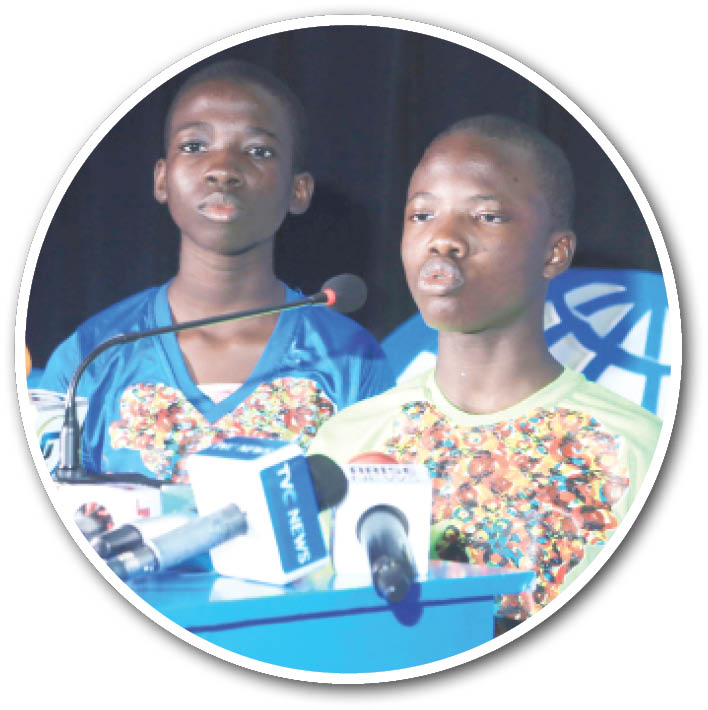The Nigeria we want (1)
Two beneficiaries of the Slum to School project spoke at a Naija Youth Talk event organised by UNICEF and partners to mark the 2019 International Literacy Day. The two secondary school students, Mariam Alade and Okechukwu Emmanuel, spoke on Article 13 of the CRC. Excerpt: Mariam: I am excited to be here and I am […]

Two beneficiaries of the Slum to School project spoke at a Naija Youth Talk event organised by UNICEF and partners to mark the 2019 International Literacy Day. The two secondary school students, Mariam Alade and Okechukwu Emmanuel, spoke on Article 13 of the CRC.
Excerpt:
Mariam:
I am excited to be here and I am a girl. I am proud to be a Nigerian and also an African. I live in a community called Makoko in Lagos State. I believe most of you have heard great things about it and possibly been there. I love it there. But I did not choose all these, we did not choose where we are born, we did not choose our nationality, ethnicity and gender. We did not choose who our parents would be neither did we choose who are siblings are but one thing we can choose is the kind of life we live; the impact we can create and the legacy we would leave.
Since I was five, I have always been asked one question, I guess most of you were asked the same questions when you were younger. The question was what will you be when you grow up? My teacher will always call me a future pilot, future journalist. My uncles will ask, Mariam you’re becoming a big girl, what do you want to be when you grow up. And even my parents, especially my mum, who is not too educated but was eager to know what I want to do when I grow up.
People rarely care to know what I can do now or what impact I can create now. They often believe that as children we are just leaders of tomorrow, but they forget that we can also be leaders of today.
As children, people feel we are too young to create great impact, they feel we are blind and cannot see what is going on around us. They feel we are too naive to have certain conversations, they feel we are too little to learn certain things. They forget that if they don’t teach us, we will still learn probably from the wrong people and sooner than they could even imagine.
As a child I believe that every child deserves better. I believe that our voices deserve to be heard. I believe that we need to be part of certain conversations and policy formulations especially those that are made for us. There is a Yoruba adage that says, Agbalagba ko ki paro, it means the adult does not tell lies. But I know many adults that tell lies. It means when adults do something that is not right, you cannot and should not correct them. I hardly go for programmes and see children speak on the same stage as adults.
I am so excited to see UNICEF creating a platform for children’s voices to be heard.
Emmanuel:
Who says children are dull, naïve and are too young to create an impact in their communities! I believe every child is a treasure and has the innate potentials to transform their communities. Every child is like a candle in a dark room and all they need are people who would not just see the candle but also the potentials of the candle to light up the room. I will show a few of our friends creating great impact across various communities. Here is Zuriel Oduwole, at the age of 10 she was profiled by Forbes magazine. At 17 she had interviewed over 30 world leaders, she was a child and being a child did not limit her. There are four amazing Nigerian school girls from Lagos who created a urine-powered generator. They were also children.
To be continued
